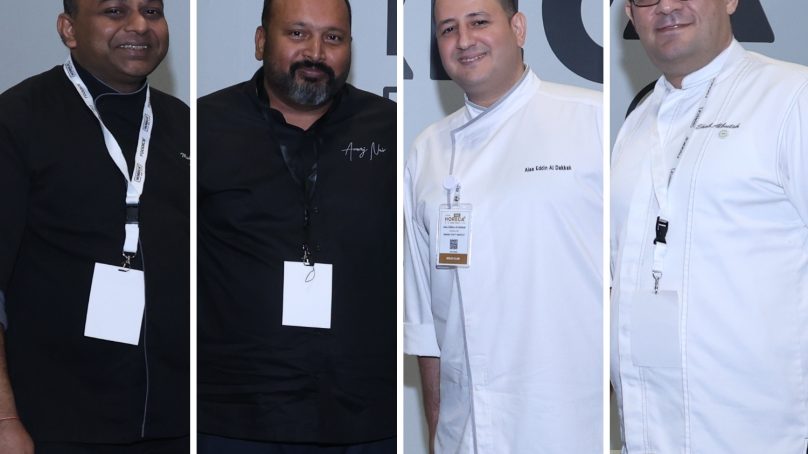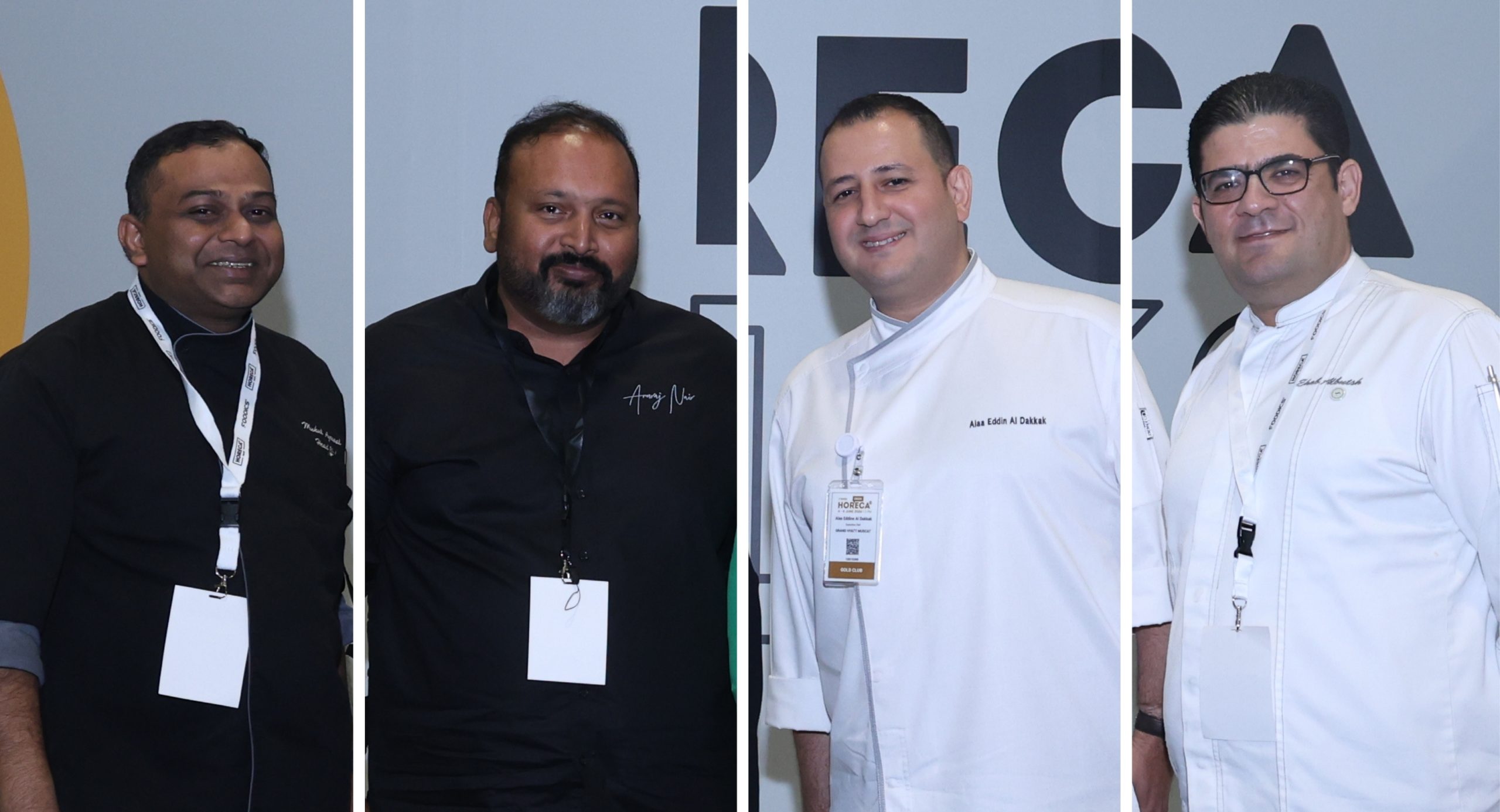New and exciting opportunities are emerging for talented chefs in Oman, with the growth and expansion of the country’s hospitality industry. We caught up with a number of executive chefs from the leading hotels in Muscat to better understand the market, what guests are looking for and the cuisines that are leading the way.
Culinary styles
Many executive chefs in Oman are influenced by their backgrounds and personal experiences. Syrian chef Alaa Eddin Al Dakkak, who leads the kitchen at Grand Hyatt Muscat, uses Middle Eastern ingredients in his dishes and believes that storytelling through food is fundamental. Similarly, Ehab Albatsh, executive chef of Sheraton Oman, channels his Jordanian culture and heritage through the menus he creates.
Culinary trends
According to Anuraj Nair, executive chef of Crowne Plaza Muscat, consumers have become more sophisticated in their requests. Indeed, many hotel guests seek vegetarian, vegan, gluten-free and plant-based dishes, so chefs must be flexible and offer a wider variety of alternatives.
Mukul Agrawal, head chef of Hilton Garden Inn Muscat Al Khuwair highlighted the importance of sustainability and reducing food waste, as consumers are becoming increasingly aware of their environmental footprint.
As travelers seek more authentic experiences, chefs in Oman — like chefs all over the world — are prioritizing locally sourced products and ingredients that meet the high standards of their guests. In Oman, the focus is on top-quality fish and seafood, which the country is famous for.
Challenges
While Oman is making great strides in import substitution, it is still vulnerable to shortages and supply issues. Al Dakkak spoke about the flour crisis and the problems this created in the kitchen.
Nair also said that it is sometimes different to find and retain the right staff, as basic skills are sometimes lacking.
















